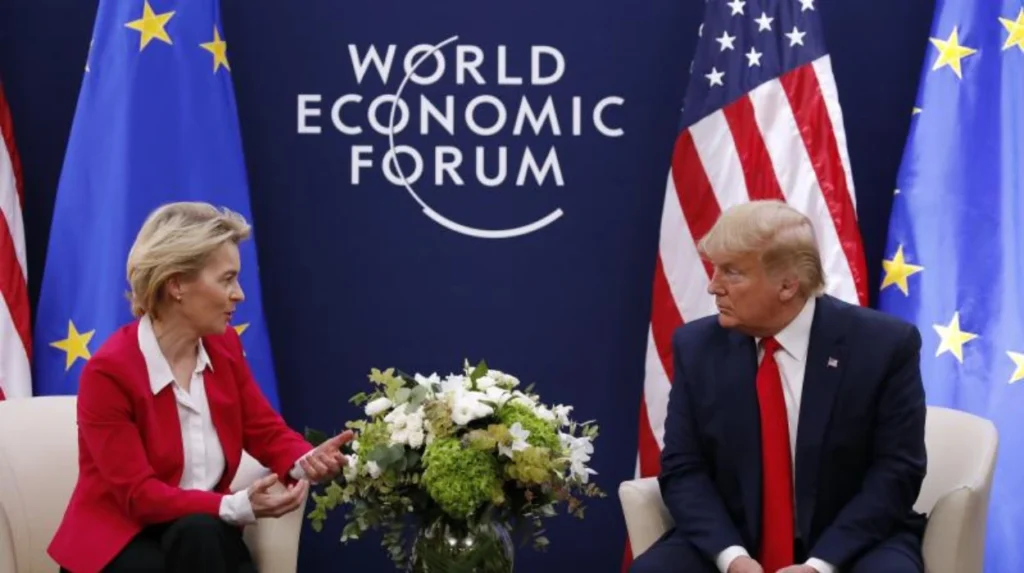The Trump Administration has launched a coordinated diplomatic campaign to oppose the European Union’s Digital Services Act (DSA), intensifying a contentious debate over digital regulation, free speech, and economic sovereignty in transatlantic relations. This aggressive lobbying effort instructs U.S. diplomats stationed across Europe to pressure governments and digital regulators to repeal or amend the DSA, which Washington views as unduly restrictive, costly to American tech firms, and a potential threat to freedom of expression online.
Background and Motivations Behind the Lobbying Campaign
The Digital Services Act, introduced in 2023 by the European Union, establishes comprehensive regulations on digital platforms to combat illegal content, misinformation, and harmful online behaviors. While the EU heralds the DSA as a landmark step toward digital sovereignty and protecting citizens’ rights, the Trump Administration perceives it as a regulatory overreach that disproportionately burdens U.S.-based technology companies such as Meta, Google, and Twitter’s successor X.
An internal State Department cable dated August 4, 2025, signed by Secretary of State Marco Rubio, has directed U.S. diplomats to take an active role in building opposition against the DSA. This “action request” provides negotiators with specific talking points to highlight the financial costs and restrictive nature of the legislation for American firms and urges engagement with European governments and stakeholders to advocate for repealing or revising the law.
The Trump Administration’s framing stresses protecting “America’s free-speech tradition,” warning that the DSA’s content moderation requirements could be weaponized to silence conservative voices and restrict expression beyond illegal content. Vice President JD Vance, a vocal critic of digital regulation, has earlier condemned Europe’s regulatory approach as an assault on free speech, characterizing the EU’s framework as “Orwellian” and harmful to democratic discourse.
The Substance of U.S. Complaints
From Washington’s perspective, the DSA and related EU digital market rules impose costly compliance burdens on U.S. companies, stifle innovation, and discriminate against American business models. The legislation’s broad mandates to monitor, moderate, and report on online content place significant operational demands on platforms. Additionally, the threat of heavy fines—already amounting to billions of euros in penalties against companies like Meta over recent years—heightens tensions.
President Trump and top administration officials have accused EU policymakers of overreach, with accusations that regulations provide protective barriers for European competitors while undermining the competitive position of U.S. tech giants. The administration has previously issued memoranda authorizing tariffs and economic penalties against countries imposing digital service taxes or restrictive regulations perceived as unfair to American firms.
Diplomatic and Political Dimensions
The lobbying directive to diplomats signals an escalation of efforts beyond industry complaints or trade discussions into the realm of diplomatic activism. U.S. embassy staff are tasked with regularly engaging with European policymakers, regulators, and stakeholders to galvanize opposition to the DSA and related national laws that could constrain online expression or impose heavy costs on U.S. companies.
This campaign follows a series of public criticisms by U.S. officials, including social media posts denouncing the EU’s approach as censorship. The pressure has sparked strong pushback within the EU, where officials defend the DSA as essential to creating a safer, more transparent digital environment in line with European values. An EU Commission spokesperson stated firmly, “Our regulations and standards were never and will never be up for discussion,” underscoring the bloc’s refusal to yield to external pressure.
European lawmakers, such as Italian MEP Sandro Gozi, have condemned the U.S. efforts as unacceptable foreign interference. Gozi declared, “Trump and Marco Rubio are trying to sabotage the Digital Services Act through diplomatic pressure. We take orders from neither Washington nor digital oligarchs. Our laws defend the rights of our citizens and transparency.” The transatlantic dispute thus extends beyond regulatory disagreements to questions of sovereignty and political autonomy.
Impact on U.S.-EU Relations and Tech Industry
The Trump Administration’s lobbying against the DSA risks heightening tensions in transatlantic relations, particularly as the EU seeks to assert digital sovereignty amid concerns about foreign data access and influence. The ongoing conflict complicates negotiations on trade and digital cooperation, with reports suggesting that the DSA’s provisions remain a sticking point in broader U.S.-EU discussions.
For U.S. tech companies, the lobbying campaign represents a high-stakes battle over regulatory frameworks that shape their operations and profitability in the European market. With fines against firms like Meta recently averaging over $1 billion annually in Europe, industry insiders see the administration’s intervention as a crucial lifeline. Meta’s top executives have signaled their support for the hardline message, aligning corporate strategy with political objectives to push back against what they view as unfair treatment.
Critics, however, question whether the administration’s approach prioritizes corporate interests over genuine free speech or digital rights. Some analysts argue that while certain DSA provisions impose costs, the overall regulatory regime aims to enhance user protections and accountability in an era of rapid technological change.
Broader Geopolitical and Regulatory Context
This lobbying campaign forms part of a wider transatlantic clash over digital governance, where differing philosophies on regulation, data privacy, and platform responsibility come to the fore. European policymakers emphasize the role of regulation in safeguarding democratic values, social cohesion, and user rights, while U.S. officials emphasize market freedom, innovation, and protection of free expression.
The episode also reflects shifting power dynamics as the EU advances initiatives to reduce dependence on foreign technology infrastructure and assert regulatory autonomy. Meanwhile, the U.S. leverages diplomatic tools and economic pressure to defend the interests of its dominant tech sector.
Observers note that this confrontation could presage longer-term competition over global digital standards, with significant implications for multinational companies, regional alliances, and the future of internet governance.
The Trump Administration’s concerted diplomatic push against the EU Digital Services Act marks a pivotal moment in the evolving transatlantic digital policy landscape. It forces a reckoning over the balance between sovereignty, free speech, corporate power, and regulatory oversight at a time when technology and politics are inextricably linked across international borders. As the U.S. and EU dig in on opposing sides, the outcome could redefine the contours of the digital economy and democratic governance on both continents.







